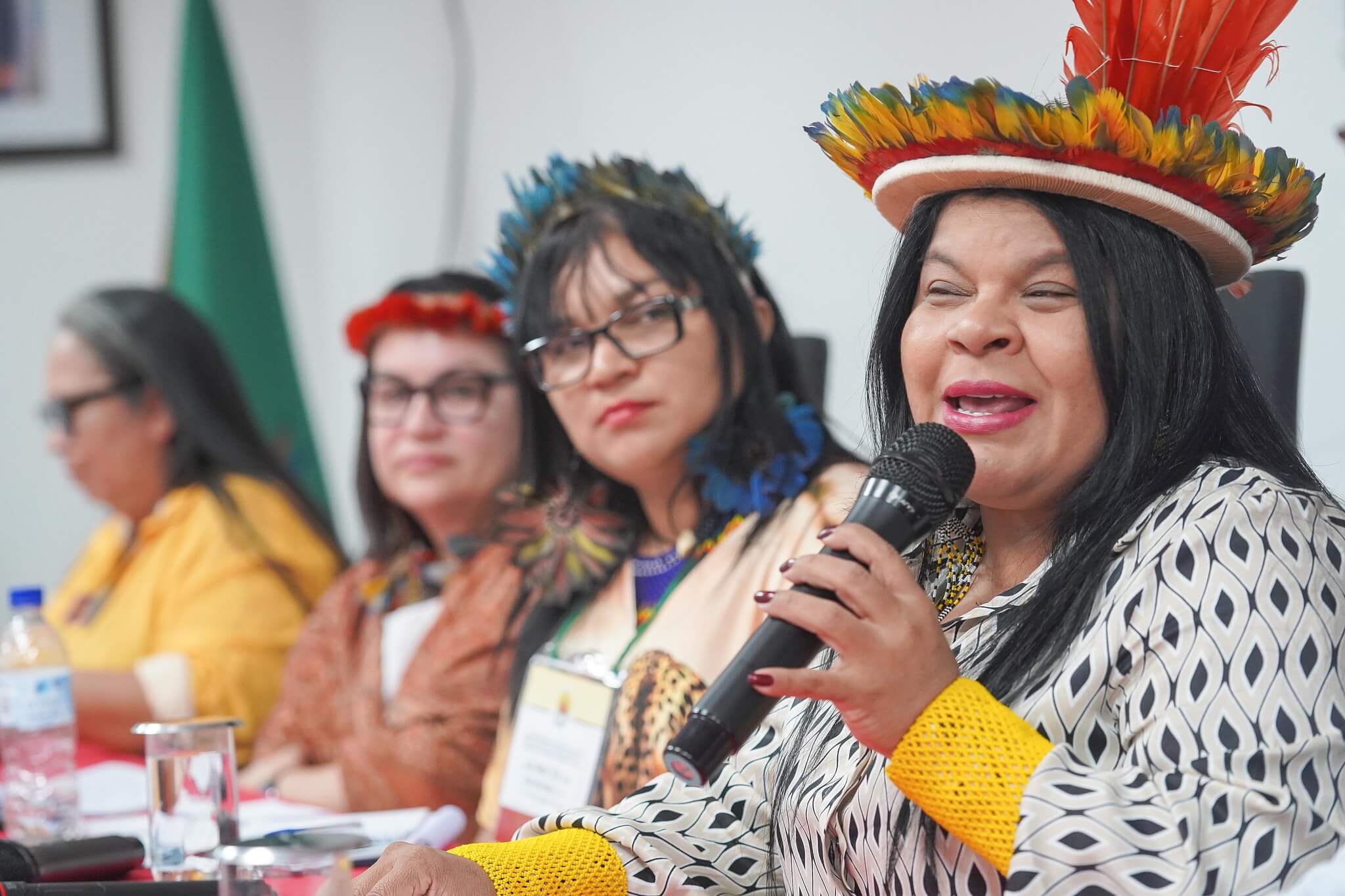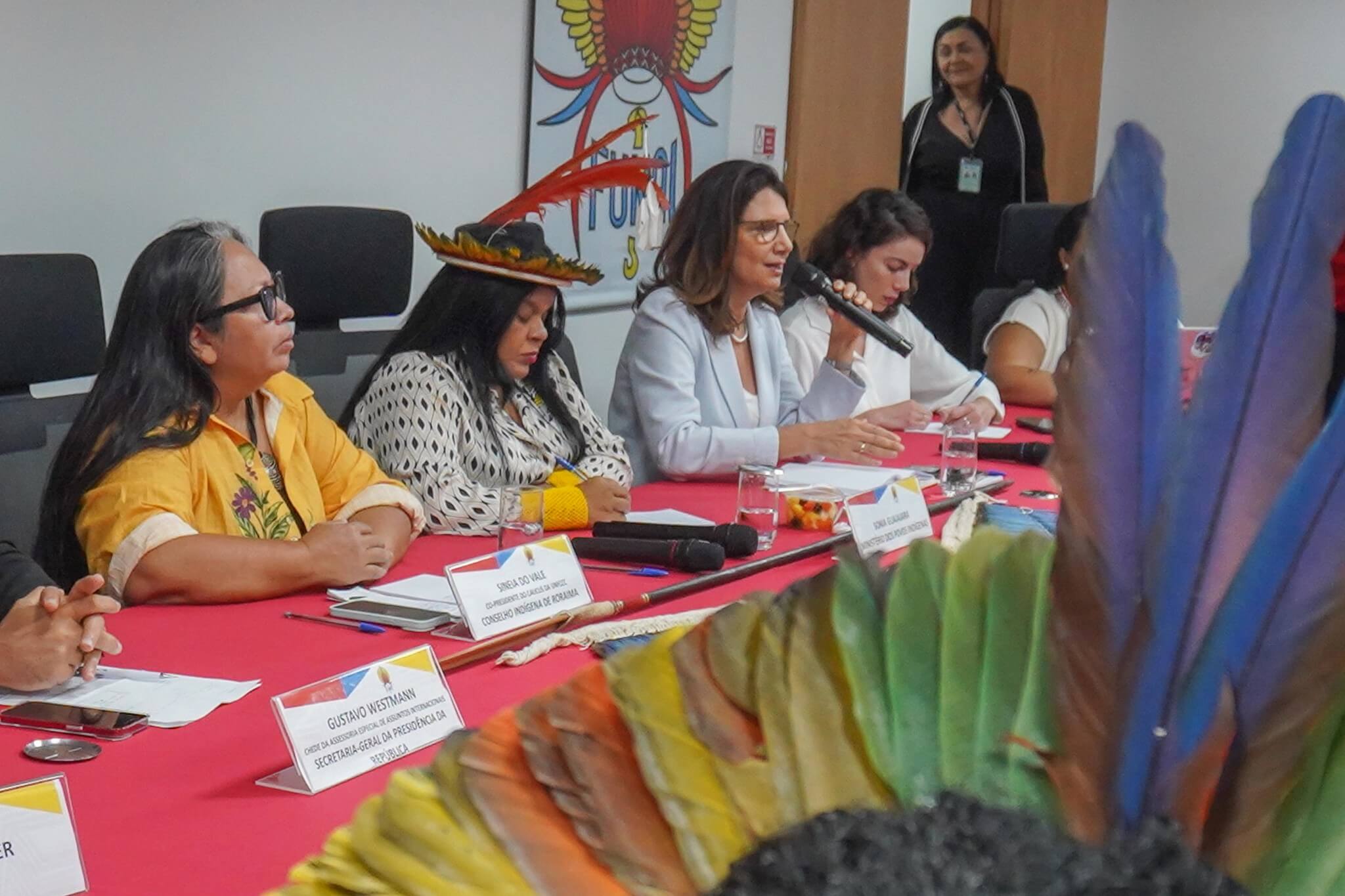Federal government engages Indigenous leaders to shape COP30 climate agenda
Federal government has been listening to Indigenous representatives to develop the agenda for COP30, the UN Climate Conference, scheduled November this year in Belém, Pará.

The meeting took place during the 21st Ordinary Meeting of the Steering Committee of the National Policy for Territorial and Environmental Management of Indigenous Lands (PNGATI), hosted by the National Foundation for Indigenous Peoples (FUNAI) in Brasília. The aim was to ensure inclusion and active participation in discussions on climate change. Representatives from the Ministry of the Environment and Climate Change (Ministério do Meio Ambiente e Mudança Climática/MMA), the Ministry of Foreign Affairs (Ministério das Relações Exteriores/MRE), the General Secretariat of the Presidency of the Republic (SGPR), Office of the Chief of Staff(Casa Civil), FUNAI and the Brazilian COP30 presidency attended.
MMA's National Secretary for Climate Change and COP30 Executive Director, Ana Toni, reinforced Brasil's commitment to promoting the inclusion of Indigenous peoples in the international climate regime. She also recalled that COP30 marks the first decade since the Paris Agreement and should promote progress in fulfilling the commitments made over the past ten years. “We hope to inaugurate a decade of implementation and acceleration of actions,” she added.

Brasil’s Minister for Indigenous Peoples, Sônia Guajajara, stressed the importance of Indigenous organizations’ presence throughout the COP30 preparation process. "This sustained support for Indigenous peoples is essential. We must ensure their participation," she said.
Among the themes discussed at the meeting were matters such as adaptation, equitable transition, carbon markets, deforestation, direct climate financing for Indigenous funds and the acknowledgement of the demarcation of Indigenous territories as a climate policy.
As part of the preparations for COP30, federal government representatives of the National Council of Traditional Peoples and Communities (CNPCT) have already been heard. Further dialogues with other sectors of society are expected in the upcoming months.
The meeting was also attended by Edel Moraes, the MMA's national secretary for Traditional Peoples and Communities and Sustainable Rural Development; Francisco Melgueiro, FUNAI's general coordinator for Environmental Management; Gustavo Westmann, head of the SGPR's Office of the Special Advisor for International Affairs; Mário Mottin, head of the MRE's Climate Action Division; Rafael Dias, project manager at the Office of the Chief of Staff (Casa Civil), as well as representatives from the Brazilian Institute for the Environment and Renewable Natural Resources (IBAMA), the Chico Mendes Institute for Biodiversity Conservation (ICMBio) and the Secretariat for Indigenous Health (SESAI) of the Ministry of Health (Ministério da Saúde).
COP30
The Conference of the Parties (COP) on Climate, this year presided over by Brasil, is the key global event dedicated to discussions and negotiations related to climate change. The meeting gathers 198 countries that are members of the United Nations Climate Change Convention (UNFCCC) (known as “parties”) to assess the implementation of the agreement and establish measures to ensure compliance, as well as set new guidelines for mitigating environmental impacts. Held annually, the presidency is rotated among countries from the five regions recognized by the UN: Africa, Asia, Latin America and the Caribbean, Central and Eastern Europe, and Western Europe and Others.
Source: Ascom MMA
English version: Bárbara Menezes
